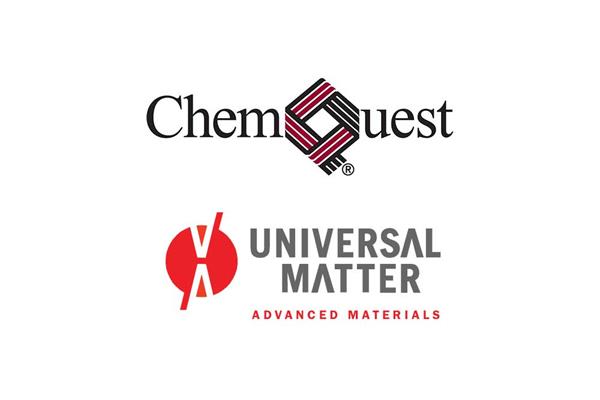
The ChemQuest Technology Institute has entered a three-year agreement to support the development of Universal Matter’s graphene technology based on sustainable feedstocks.
ChemQuest announced that it will explore the benefits of Universal Matter’s pioneering graphene technology in applications for paints and coatings. This high performing, economical graphene technology is based on a range of carbon materials, including coal, cokes, biomass and recycled rubber and plastics, which reduces its environmental footprint versus graphene based on traditional feedstocks.
“In this collaboration, Universal Matter seeks to leverage ChemQuest’s 40-plus years of industry expertise and technology development experience and to validate performance and value creation benefits in the target applications that will ultimately accelerate the industry transformation,” said John van Leeuwen, CEO of Universal Matter.
“Our team is excited to continue working with this unique and valuable material. Not only is Universal Matter’s graphene technology sustainable thanks to raw materials based on biological and circular sources – it is also economical, scalable and extremely high performing. This is because of its innovative and novel production process,” said Daniel Murad, CEO of The ChemQuest Group.
How it works
Universal Matter produces its graphene using rapid, flash-fired bursts of electrical energy. The process enables the bonding of carbon into few layers of turbostratic graphene, as opposed to AB-stacked (Bernal) graphene, resulting in performance benefits in the target applications. The flash process is modularized into compact manufacturing units and can be scaled by adding more modules of identical configuration. Many different carbon-based feedstocks can be transformed into high purity turbostratic graphene using this flash process.
Earlier collaboration between Universal Matter and ChemQuest demonstrated the effectiveness of the technology in formulations for specific applications. Proven performance improvements included compressive strength, tensile strength, barrier properties, rheological enhancement and flow characteristics. The current initiative will focus on developing knowledge for a broader range of applications in paints and coatings.
“There is an inherent need and significant business opportunity to improve the performance and sustainability of products in these markets via the upcycling of carbon into ‘green’ graphene, thus improving the mechanical properties of these industrial materials and creating stronger, longer lasting coatings, which also significantly reduce our carbon footprint and greenhouse gas emissions”, according to van Leeuwen.
“We look forward to building on our collaboration with Universal Matter and helping them to create higher performing, more sustainable formulated products,” Murad said. “We recently invested in the expansion of our R&D facilities. Our expanded resources will enable us to independently qualify and quantify the benefits of the technology in a diverse range of market applications, identify the most valuable opportunities and help to expedite their commercial feasibility and market entrance.”